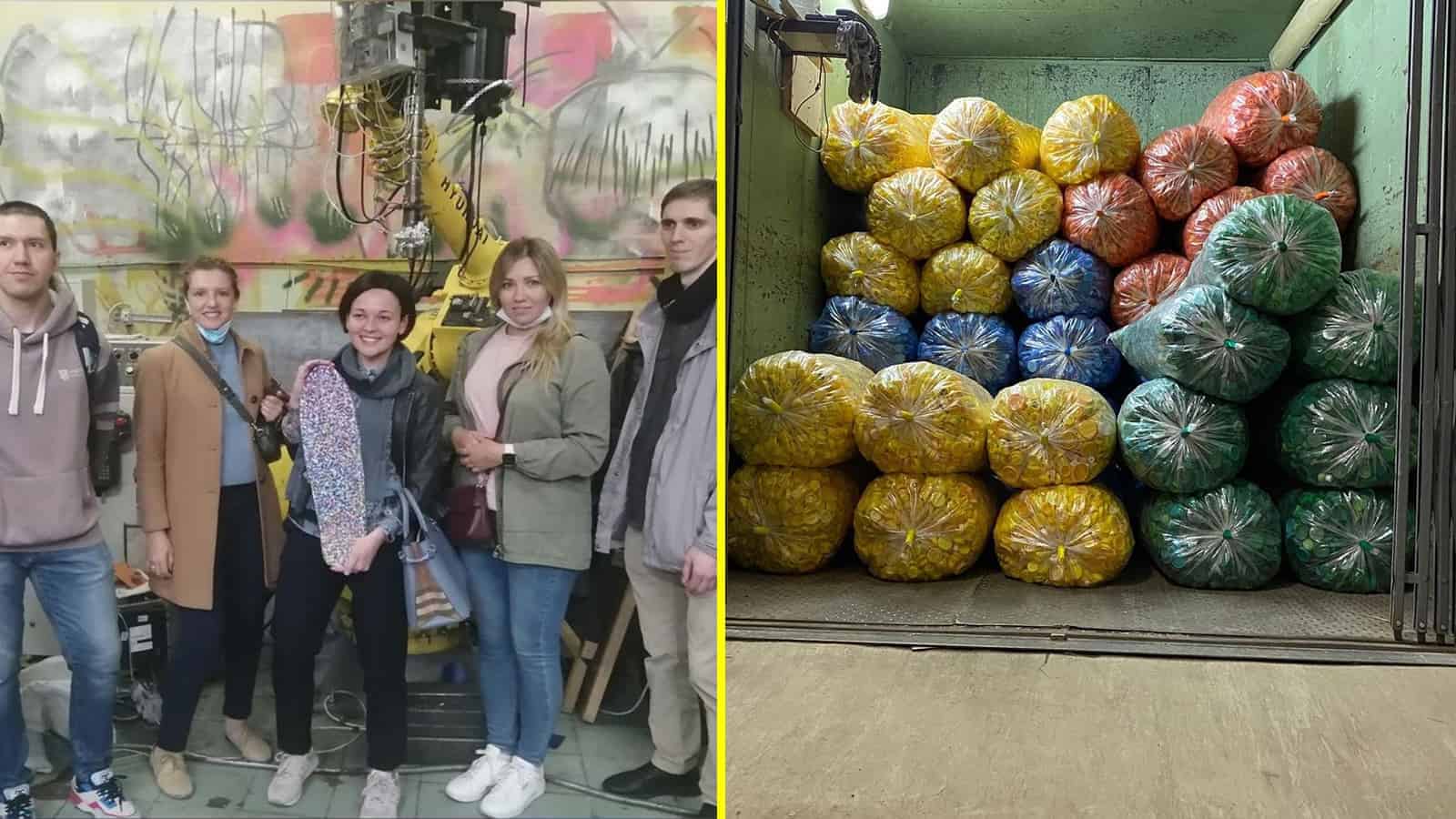A fashion company based in St. Petersburg, Russia takes trash piles and transforms them into unique accessories.
Unfortunately, Russia’s landfills have poorer maintenance and less oversight than those in other countries throughout Europe.
In fact, one landfill in Moscow measures at least 10 stories tall. Authorities warn that poor waste management could lead to infectious diseases and polluted groundwater.
Because of the dire trash situation in Russia, the fashion company 99Recycle decided to take matters into their own hands. Workers sifted through mountains of trash to gather various recyclable materials. Then, they turned them into novel recycled accessories and school supplies. The company designed items such as backpacks, bags, pencil and laptop cases, and toys like skateboards and bicycles.
Their ingenuity caught the attention of officials overseeing the 2020 St. Petersburg Awards. They gave the Recycle/Upcycle Project of the Year award to 99Recycle because of their sustainable products.
In the modern world, “fast fashion” is an ever-growing problem. Companies aim to create mass quantities of clothes as cheaply as possible, without regard for the consequences. Unfortunately, keeping costs low takes a devastating toll on the environment. According to the World Economic Forum, the fashion industry produces an astounding 10% of total carbon emissions.
Some other startling statistics about fast fashion include the following:
Here are some interesting facts.
The fashion industry uses a lot of water
- The fashion industry is one of the most water-intensive industries in the world, second only to fruit and vegetable farming. It consumes around 79 billion cubic meters of water annually.
- Making just one cotton T-shirt requires about 2,700 liters of water, and a pair of jeans takes nearly 7,600 liters.
- The water it takes to make one T-shirt could provide one person drinking water for 900 days.
- The fashion industry contributes greatly to water pollution. Textile dyeing is the world’s second-largest polluter of water. Runoff from the dyeing process goes into rivers, streams and ditches.
- Cotton requires 5,283 gallons of water to produce just 2.2 pounds of the crop. This amount of cotton can produce just one T-shirt and a pair of jeans. According to the WWF, “current cotton production methods are environmentally unsustainable.”
- Washing clothes also creates harmful air and ocean pollution. Each year, around 500,000 tons of microfibers get released into the oceans from laundry alone. This equates to 50 billion plastic bottles worth of microplastics.
Clothing litters the world’s landfills
- The equivalent of one garbage truck of clothes goes to a landfill every second. A staggering 85% of textiles ends up in dumps each year, where it gets burned or simply goes to waste. The Sydney harbor could get filled annually with the amount of clothes thrown away.
- People bought 60% more clothing in 2014 compared to 2000, but they kept clothes only half as long.
- Since 2000, the fashion industry’s production has nearly doubled.
- Fashion companies in Europe only offered an average of two collections per year in 2000. In 2014, that increased to five.
The impact of synthetics
- The majority of the fibers actually come from polyester, a type of plastic found in roughly 60% of clothing. Polyester production releases two to three times more carbon emissions than cotton, and polyester doesn’t break down in the ocean.
- A 2017 report from the International Union for Conservation of Nature (IUCN) offered more damning evidence against the fashion industry. It estimated that 35% of all microplastics, tiny pieces of non-biodegradable plastics — in the ocean came from washing synthetic products like polyester.
- Just one example of the fashion industry’s catastrophic impact on the environment can be seen in Uzbekistan. There, relentless cotton farming caused the Aral Sea to completely dry up after 50 years. To put that in perspective, the Aral Sea was once one of the world’s four largest lakes.
- In total, the fashion industry causes 20% of all industrial water pollution worldwide.
How 99Recycle is disrupting the fashion industry with sustainability
As you can see, fast fashion and the production of clothes, in general, contributes enormously to environmental degradation. 99Recycle is just one company that aims to drastically reduce its carbon footprint.
The company uses a large 3D printer much like the type used by Hyundai. This 3D printer only utilizes recycled plastic as raw materials, and creates textiles from hand-sewn products. This ensures that each accessory or clothing item retains individuality. So far, 99Recycle has gathered over 70 tons of recycled plastic by collaborating with local recycling agencies.
“The process of preparing the materials is more complicated than for ordinary materials. Most of our time is taken up by the preparation, because we need to clean it, to make it even, to select it, to reject some materials,” Olesya Kulik, designer at 99Recycle told Euronews.
Since 95% of all waste in Russia ends up in landfills, 99Recycle doesn’t want to contribute further to the problem. Instead, they want to become part of the solution in combating throwaway culture. In addition to creating eco-friendly products, the company holds classes and lectures about recycling and sustainability. They hope their small influence will help people become more aware of their daily habits.
“Globally, humanity needs to resolve the garbage problem, there is no way around it,” co-founder of 99Recycle Anton Rykachevskiy says. “A lot of trash is appearing, and we take on the role of guys who inspire everybody around us. We take something that seems to be garbage. Now people call it recyclable materials, it’s good. And we create cool, exceptional things, which weren’t previously made of recyclable materials.”
Final thoughts on the fashion company based in Russia, turning trash into treasure
So who would’ve thought that trash rotting in a landfill could become a fashion statement? That’s exactly what 99Recycle had in mind when the founders created the company. They scour landfills and work with recycling non-profits to create unique, sustainable items.
The company has a small online store selling bags, backpacks, fanny packs, and skateboards. They also offer to work with corporate companies on promotional products and branded merchandise. Indeed, 99Recycle shows that the fashion industry can adopt sustainable practices while still creating aesthetically appealing products.














 Community
Community

